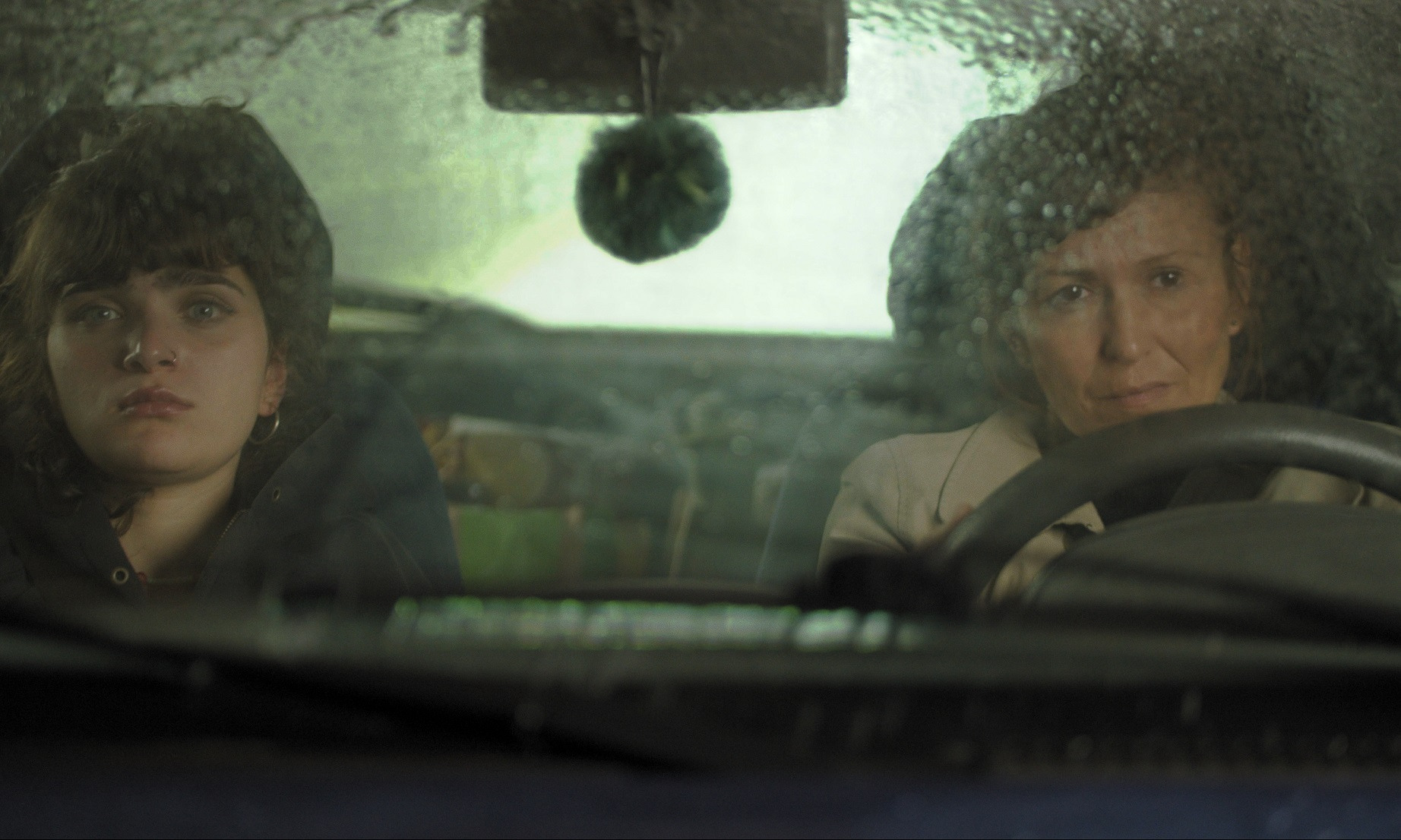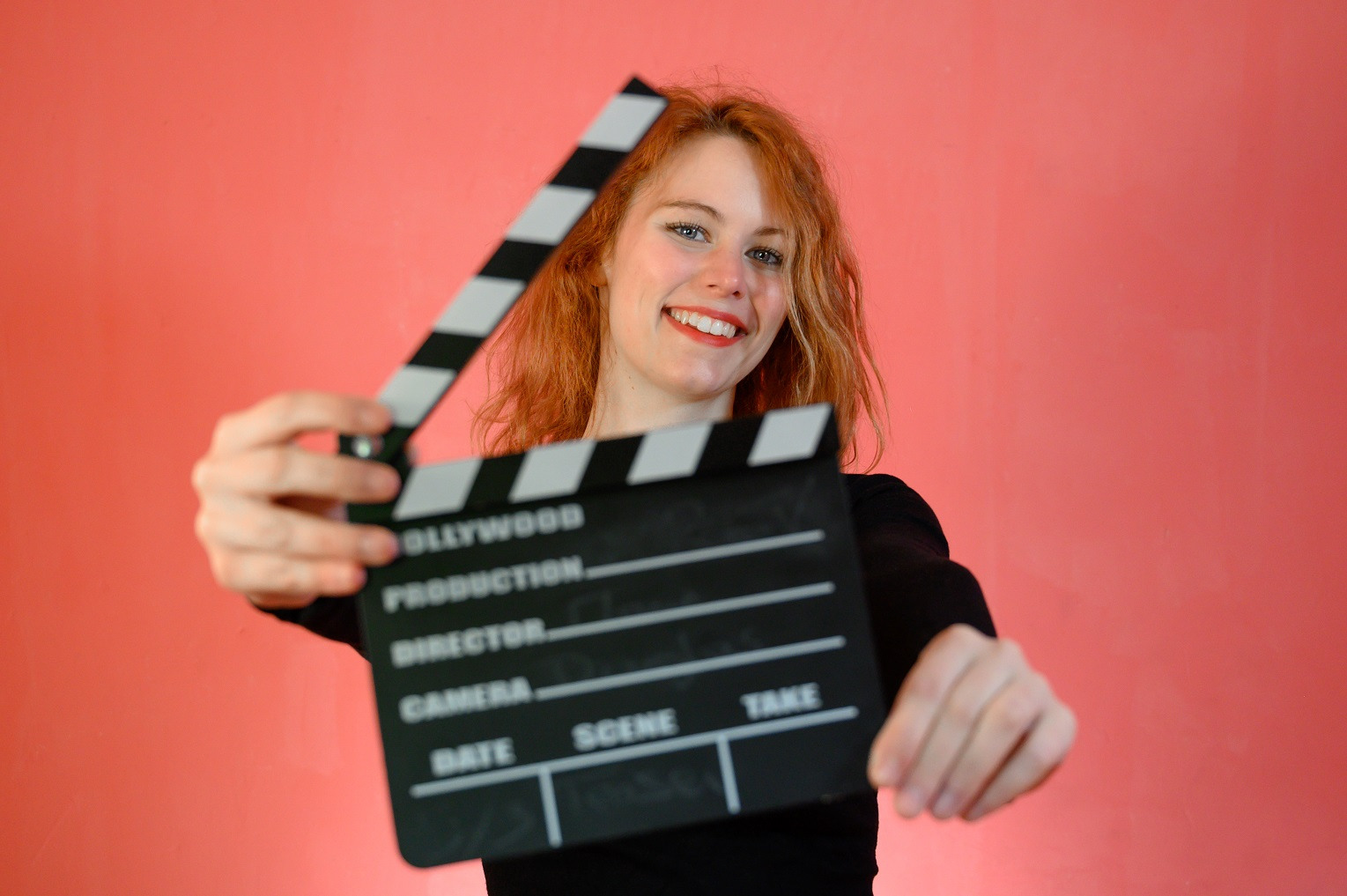
Case Study: Le Trajet
Marie Lormeau comes back on her short fiction Le Trajet.
Geplaatst op 21 februari 2022Limburg based maker Marie Lormeau recently finished short road movie Le Trajet. In this case-study she describes the creative and production processes of the project.
Apology Letter
"As a teenager I was quite self-centered. I could be very apathetic and critical of my mother, deeming her effort “not enough” whereas, considering all she had to deal with, it was the best she could do. I felt outraged when I realised grownups don’t know everything, and that all parents have flaws."
"It made it difficult for me to communicate with my mother and apparently, also for her to communicate with me. We used to explode and yell at each other, and I noticed it was often during car ride. I think unconsciously, we took advantage of the situation, being trapped in the car, unable to run away from each other, to open and let our grievances out."
"End of 2020 I wrote a small dialogue inspired by one of our many quarrel-fueled car drive. Having more hindsight and experience as an adult, I came back to all those memories with a different perspective. It made me feel all sorts of things, mostly guilt. In early 2021 my mother had a heart attack (sadly not her first). She survived but it left her very weakened; I felt the urgency to tell the story even more. For me, this film became my apology letter, as daughter, to my mother."
"The script went through a lot of changes before being ready. The original version of the script was 17 pages long. I really trimmed it; cutting bits that were too much, parts of the dialogue that felt forced, some sub-stories that were not necessary. The project was allowed into some of CineSud’s ShortsLab: I was coached and guided through the changes without losing my ideas or style. The writers room really helped breaking the script down. Because the script was based on a true story, and a personal one at that, it was sometimes hard for me to really be neutral to it. It was an intense process, as you receive a lot of feedback and some things can be hard to hear, but the coaches know what they are talking about, and it was very beneficial to the script and myself."
Technicalities and Engine Light
"For this production I was main producer, scriptwriter, director, and editor. It was not easy! But in the end, it worked out, and I think we all had fun on set and are happy with the result."
"I choose to work with two Director of Photographies, as I wanted a collaboration between two DOP's whose work I really like. Douglas Robson shot all the footage in studio and Coen Leuven shot all the footage on the road and was also in charge of the colour grading of the film. They both worked on the shot-list together.""
"We decided to go for a studio shoot as it seemed dangerous to shoot on the road. We placed the car in front of a projection screen onto which we cast some road footage taken around Limburg. The car was also mounted on a mobile car stand so the crew could turn it depending on the shot, instead of having to adapt the projection screen to the camera angle (saving a great deal of set-up time). The car was then manually rocked during each take to give the impression of movement. Artificial shakes were also added later in post-production. Lastly, we simulated the rain using a vaporizer for the drizzle and a garden hose for stronger rain (and sometimes buckets)."
"The production went rather smoothly; we were not bothered by the pandemic as at the time of the shoot the regulations had been loosened. The cast was then able to travel to Limburg to shoot. The main crisis we encountered was that the car used for the film, broke down a week before set. It was a very old Fiat Punto that was not reliable anymore and we were told it was not going to be fixable. It was disastrous for us: not only because it was one of our DOP’s car, so making it more difficult for him to attend set and transport the shooting gear, but also because it was a pretty essential part of the script (it being a road movie and all). In the end, the car was repaired, pulled through until the film was shot and finished its days at the scrapper. Thank you, Punto."

Watch this short at Euregion Film Festival
March 5, Royal Theater Heerlen.
Language Barrier and Cacophony
"I wrote the script in French; I was looking for French speaking actresses. Thankfully the Theatre de Liège has an exhaustive data base of actors and actresses: I saw a few profiles that would fit the script and wrote to the Theatre, describing the project and asking to be put in contact with some of the performers. I found one lead, Tatia Tsuladze. Unfortunately the profiles I had in mind for the other role did not work out. I ended up publishing a call out on a Belgian website and Stéphanie Marino answered it. During our introduction via zoom, I was surprised to hear she was French but applied despite the distance between us, as the synopsis really interested her."
"As the film was dialogue heavy, I decided to do the edit myself which proved difficult because it was sometimes hard to detach from the script -or my own personal recollection of that story. I was also coached within the CineSud programme during that step of production."
"At the beginning we wanted to compose our own music all through the film. But because there was a lot of dialogue and it involved an argument, we decided against it, as it would have given the film a cacophonous feel. We only composed music for the scrolling end credits."
Advise to Makers
"Don’t be scared to delegate. For a personal story, it is normal to feel the need to assume different positions. This way, one might have more control over their story. This is true but also very taxing."
"Having oneself work on each step of the production also restricts the vision: it is easier to overlook things, that a fresh pair of eyes would see. Additionally, it can cause a disinterest for the project in the long run or trigger a burn out."

(c) All visual material is used with the filmmaker's permission.